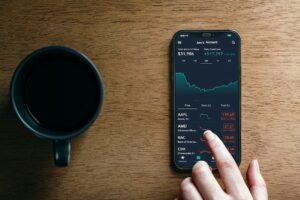Choosing the Right Forex Broker for Your Trading Needs
When it comes to trading in the forex market, one of the most crucial decisions you will make is choosing the right forex broker. A forex broker acts as an intermediary between you and the market, executing your trades and providing you with access to various trading tools and resources. With so many brokers available, it can be overwhelming to find the one that suits your trading needs. In this article, we will discuss the key factors to consider when choosing a forex broker.
Regulation and Safety:
The first and foremost aspect to consider when selecting a forex broker is their regulation and safety measures. You must choose a broker that is regulated by a reputable financial authority. Regulatory bodies such as the Financial Conduct Authority (FCA) in the UK, the National Futures Association (NFA) in the United States, and the Australian Securities and Investments Commission (ASIC) ensure that brokers adhere to strict standards and protect the interests of traders. Additionally, look for brokers that segregate clients’ funds in separate accounts to ensure they are not used for any other purposes.
Trading Platform:
The trading platform provided by the broker is another critical factor to consider. A reliable and user-friendly platform is essential for executing trades effectively. Most brokers offer popular platforms such as MetaTrader 4 (MT4) or MetaTrader 5 (MT5), which provide advanced charting tools, real-time quotes, and a wide range of technical indicators. It is important to test out the platform’s features and interface before committing to a broker. Some brokers also offer their proprietary platforms, which may have additional features tailored to their clients’ needs.
Trading Costs:
Trading costs can significantly impact your profitability. Therefore, it is crucial to understand the fee structure of a broker before opening an account. Most brokers charge spreads, which are the difference between the buy and sell price of a currency pair. Lower spreads typically translate to lower trading costs. Additionally, some brokers charge commissions on trades, especially for ECN (Electronic Communication Network) accounts. Be aware of any hidden fees, such as deposit or withdrawal charges, and consider the overall cost structure when comparing brokers.
Account Types:
Consider the different account types offered by a broker and choose the one that aligns with your trading style and capital. Most brokers provide different account types, such as standard accounts, mini accounts, or even Islamic accounts for traders who adhere to Shariah law. Standard accounts usually require a higher initial deposit but offer lower spreads. Mini accounts, on the other hand, allow traders to start with a smaller capital and often have higher spreads. Some brokers also offer demo accounts, which allow you to practice trading using virtual money before risking real funds.
Leverage and Margin:
Leverage allows traders to control larger positions with a smaller amount of capital. However, higher leverage also increases the risk of significant losses. Therefore, it is essential to understand the leverage options offered by a broker and choose the one that suits your risk appetite. Different brokers offer different leverage ratios, such as 1:100, 1:200, or even higher. Additionally, consider the margin requirements, which determine the amount of capital you need to maintain in your account to support your open positions.
Customer Service:
Having access to reliable customer service is crucial, especially in the fast-paced forex market. Look for brokers that offer responsive customer support through various channels such as live chat, email, or phone. Test their customer service before opening an account by asking questions or seeking assistance. A broker that provides timely and helpful support can make a significant difference in your trading experience, especially during times of technical issues or account-related inquiries.
Educational Resources:
Forex trading is a continuous learning process, and having access to educational resources can be immensely beneficial. Consider brokers that provide educational materials such as trading tutorials, webinars, market analysis, and economic calendars. These resources can help you stay informed about market trends, develop trading strategies, and improve your overall trading skills. A broker that invests in its clients’ education demonstrates a commitment to their success.
In conclusion, choosing the right forex broker is a crucial decision for any trader. Consider factors such as regulation, trading platform, trading costs, account types, leverage, customer service, and educational resources when making your decision. Take the time to research and compare different brokers to find the one that aligns with your trading needs and goals. Remember, a reliable and trustworthy broker can significantly contribute to your success in the forex market.






